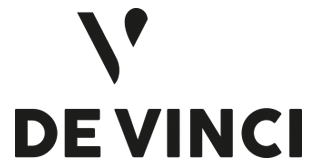@incollection{essid_3018,
title = {Sustainability Reporting and Innovation in the Energy Sector},
author = {Moez Essid and Tarik Bazgour},
editor = {Eds: Atici, K.B., Boz Semerci, A., Kabakci, H., Shrestha, P.},
url = {https://doi.org/10.1007/978-3-031-80001-6_7},
issn = {978-3-031-80001-6},
year = {2025},
date = {2025-03-01},
booktitle = {Energy Entrepreneurship, Sustainability, Innovation and Financing: Practical Applications & Future Directions},
pages = {129-151},
publisher = {Springer, Cham},
edition = {SRINGER},
abstract = {Based on a sample of 274 U.S. companies operating in the energy sector between 2010 and 2022, this chapter describes four sustainability reporting (SR) practices and examines whether innovation within these companies has an impact on their SR. First, our statistical analyses show that U.S. energy companies have made significant progress in the use of the Global Reporting Initiative (GRI) guidelines, the Sustainability Accounting Standards Board (SASB) standards, the Task Force on Climate-related Financial Disclosures (TCFD) Recommendations, and finally the external assurance of the sustainability reports over the period 2010-2022. Second, we run logistic regressions to examine the association between R&D expenditures, as a proxy for innovation, and the four SR practices. It appears that the more a company invests in R&D, the less likely it is to use a specific sustainable reporting framework, standard, or guideline. We conclude that the trade-off approach of the resource-based view assuming a negative relationship between CSR practices and innovation applies in the U.S. energy sector setting.},
note = {Based on a sample of 274 U.S. companies operating in the energy sector between 2010 and 2022, this chapter describes four sustainability reporting (SR) practices and examines whether innovation within these companies has an impact on their SR. First, our statistical analyses show that U.S. energy companies have made significant progress in the use of the Global Reporting Initiative (GRI) guidelines, the Sustainability Accounting Standards Board (SASB) standards, the Task Force on Climate-related Financial Disclosures (TCFD) Recommendations, and finally the external assurance of the sustainability reports over the period 2010-2022. Second, we run logistic regressions to examine the association between R&D expenditures, as a proxy for innovation, and the four SR practices. It appears that the more a company invests in R&D, the less likely it is to use a specific sustainable reporting framework, standard, or guideline. We conclude that the trade-off approach of the resource-based view assuming a negative relationship between CSR practices and innovation applies in the U.S. energy sector setting.},
keywords = {},
pubstate = {published},
tppubtype = {incollection}
}














